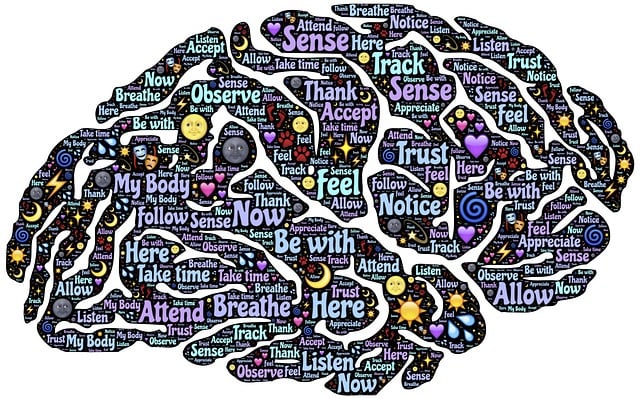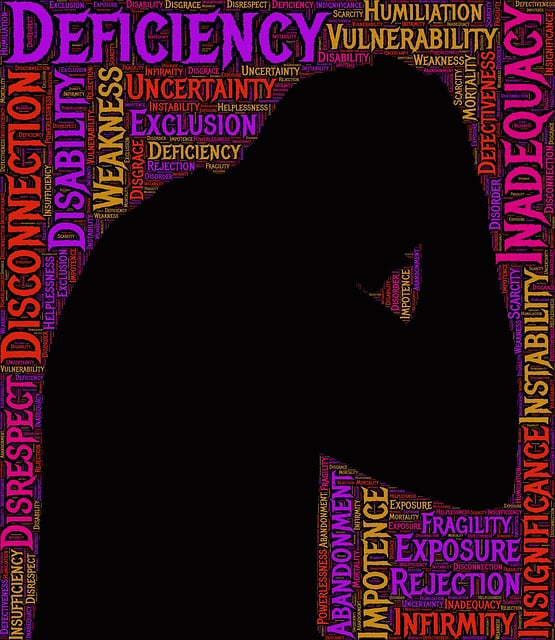Parker Eating Disorders Therapy emphasizes self-care as a cornerstone for holistic well-being in a stressful modern world. They guide individuals through self-awareness exercises and mental health assessments, focusing on practices like mindfulness, stress management, and adequate sleep to prevent burnout. The therapy prioritizes boundary setting and emotional regulation, fostering positive thinking and healthier relationships with oneself and one's body. By integrating these techniques into community outreach, Parker Eating Disorders Therapy promotes improved well-being for entire communities. Physical health, proper nutrition, exercise, and rest are key components of their approach, while building resilience through social skills training, stress management workshops, and conflict resolution techniques ensures long-term mental health maintenance.
“Unwind, rejuvenate, and rediscover yourself through a comprehensive exploration of self-care practices. This article guides you on a transformative journey towards holistic well-being, drawing insights from the expertise of Parker Eating Disorders Therapy. We delve into essential aspects such as understanding the foundational role of self-care, identifying personal needs and setting boundaries, incorporating mindfulness and stress management techniques, nurturing physical health and nutrition, and building resilient coping strategies for long-term wellness.”
- Understanding Self-Care: The Foundation of Well-being
- Identifying Personal Needs and Boundaries in Parker Eating Disorders Therapy
- Incorporating Mindfulness and Stress Management Techniques
- Nurturing Physical Health and Nutrition for Holistic Healing
- Building Resilient Coping Strategies for Long-term Self-care
Understanding Self-Care: The Foundation of Well-being

Understanding self-care is foundational to cultivating well-being. It involves intentional practices that nurture our physical, mental, and emotional health, enabling us to function at our best while mitigating the risks of burnout. In today’s fast-paced world, where demands on our time and energy are ever-increasing, prioritizing self-care becomes even more crucial. This is especially true for healthcare providers, who often face intense work environments and high-stress situations, making burnout prevention strategies essential.
At Parker Eating Disorders Therapy, we recognize that self-awareness exercises and risk assessments for mental health professionals play a pivotal role in maintaining balance. By integrating regular practices such as mindfulness, stress management techniques, and adequate sleep into our routines, we can fortify our resilience. Recognizing the signs of burnout early on and implementing effective prevention strategies are vital steps towards sustaining a healthy lifestyle and ensuring we remain equipped to support others effectively.
Identifying Personal Needs and Boundaries in Parker Eating Disorders Therapy

In Parker Eating Disorders Therapy, identifying personal needs and boundaries is a foundational step towards recovery. This process involves exploring and understanding individual emotional triggers, physical limitations, and mental health requirements. By recognizing these factors, individuals can begin to set healthy boundaries that support their well-being. It’s not just about what one eats but also how they nurture themselves emotionally and physically, which are key aspects of the therapeutic journey.
The practice of self-care is intricately linked with burnout prevention strategies for healthcare providers. In light of this, Parker Eating Disorders Therapy emphasizes the importance of positive thinking and emotional regulation. Encouraging patients to cultivate a positive mindset can help manage symptoms and reduce the risk of relapse. This holistic approach ensures that individuals not only address their eating disorders but also develop robust burnout prevention mechanisms, fostering a healthier relationship with themselves and their bodies.
Incorporating Mindfulness and Stress Management Techniques

Incorporating mindfulness and stress management techniques into your daily routine is a powerful tool for self-care, especially when supported by professional guidance like Parker Eating Disorders Therapy. Mindfulness encourages individuals to focus on the present moment, cultivating awareness of thoughts and feelings without judgment. This practice can help reduce the impact of stressful situations and improve overall well-being. Techniques such as meditation, deep breathing exercises, and yoga are simple yet effective ways to integrate mindfulness into one’s life.
The benefits extend beyond mental clarity; they contribute to a healthier lifestyle. By managing stress effectively, individuals can make more thoughtful decisions regarding their physical health. This is particularly relevant in the context of public awareness campaigns development and community outreach program implementation, where promoting positive thinking and self-care practices can have a ripple effect on community well-being.
Nurturing Physical Health and Nutrition for Holistic Healing

Taking care of our physical health is a cornerstone of holistic healing and self-care. It involves nourishing our bodies with nutritious foods, engaging in regular physical activity, and prioritizing adequate rest and sleep. This foundational aspect of well-being significantly impacts our mental and emotional states, setting the tone for our overall resilience building and burnout prevention efforts.
At Parker Eating Disorders Therapy, we emphasize the interconnectedness of physical health and emotional healing processes. A balanced diet, rich in essential nutrients, fuels both the body and mind, promoting a sense of vitality and calm. Incorporating movement and exercise into daily routines not only enhances physical fitness but also serves as an outlet for stress relief and emotion regulation. By nurturing our bodies, we lay the groundwork for sustained resilience and overall well-being.
Building Resilient Coping Strategies for Long-term Self-care

Building resilient coping strategies is a key aspect of long-term self-care and mental health maintenance. This process involves learning to navigate challenges and setbacks in healthy ways, ensuring that one’s well-being remains a priority even during difficult times. At Parker Eating Disorders Therapy, we understand the importance of resilience in fostering sustainable self-care practices. Our therapeutic approaches often include Social Skills Training, which equips individuals with effective communication and interaction strategies, promoting healthier relationships and social support networks.
By participating in Stress Management Workshops or Conflict Resolution Techniques, clients develop a toolkit of coping mechanisms tailored to their unique needs. These skills enable them to manage stress, resolve conflicts, and maintain emotional balance, all of which are essential for long-term self-care success. Through such initiatives, individuals gain the confidence to face challenges head-on, adapt to change, and cultivate a resilient mindset that supports their overall mental health and well-being.
Self-care is a transformative journey, and through practices like those offered in Parker Eating Disorders Therapy—which include understanding one’s needs, incorporating mindfulness, nurturing physical health, and building resilient coping strategies—individuals can achieve holistic well-being. By identifying personal boundaries and adopting effective stress management techniques, one can create a sustainable foundation for a fulfilling life. These strategies empower individuals to navigate challenges, promote self-acceptance, and foster long-term mental and physical health.














